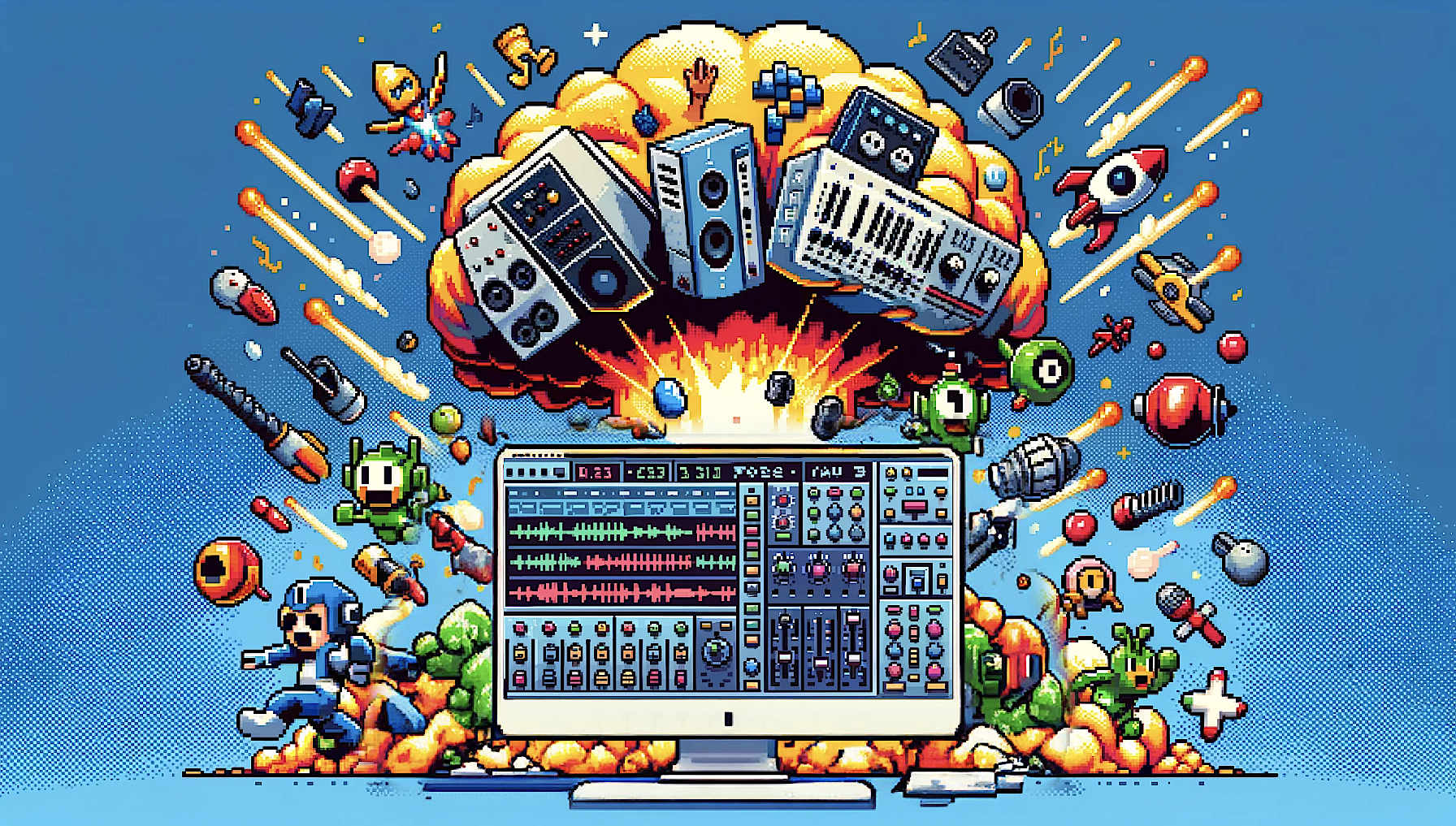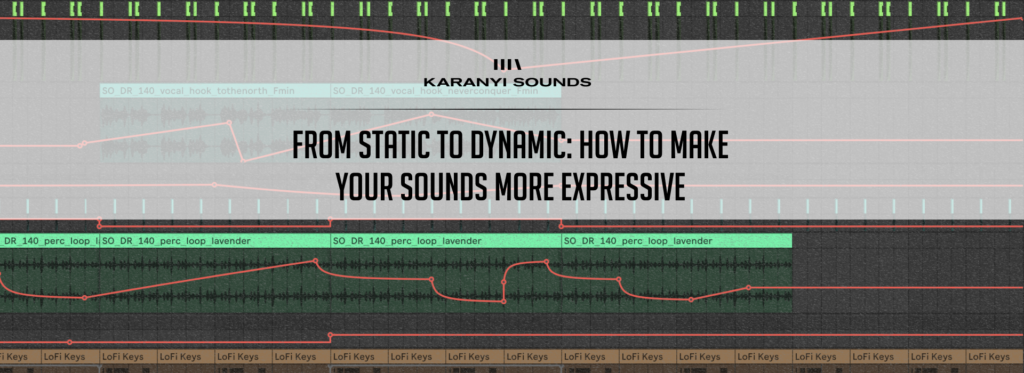
What Music Production Plugin Developers Can Learn from the Video Game Industry
June 9, 2024I was an avid video gamer during my childhood, although music captivated me at a much earlier age. Both passions were closely tied to the computer: I wrote and edited my first multi-track music on a computer, just as I played video games with a keyboard and mouse for over ten years. These two activities were creatively very similar for me: while composing music was my way of self-expression, video games often provided inspiration.
A good video game is a highly sophisticated, complex audiovisual artwork. Like any other form of art, it stimulates imagination and provokes thought. Moreover, unlike cinema, video games are interactive, allowing users to explore the creator’s original vision and engage freely in space and time.
For me, the computer was the common platform that connected my two important passions, significantly influencing my career and life. Many who grew up in the 90s share this experience.
Decades later, when I began designing and making audio plugins alongside a long career in music composition, I was astonished to see how similar the markets for audio plugins and video games are. These two industries are so alike in so many ways that they seem like twins. Here are ten reasons why I think so:
1. Both True Games and Musicians are Collectors
Both gamers and music producers have a passion for collecting new plugins. Consider this a virtual gear acquisition syndrome that musicians know very well. A new compressor is released? A new distortion plugin with a funny gorilla face on it? They will buy it immediately, even if they already have fifty similar ones on their computers. The same goes for games: a new arcade or post-apocalyptic puzzle game under $20? No-brainer: add to cart, buy – even if they already have hundreds of similar games on their Steam accounts.
2. The Importance of the Atmosphere
Players primarily play not to win but to enjoy the process. It may sound like a Zen Buddhist phrase, but just like any other artistic creation process, it’s also true for gamers. Similarly, musicians find joy in the act of creation. In video games, it’s the atmosphere, lovable characters, effects, and music; in plugins, it’s the GUI’s sound quality and visual appeal. Both markets are highly saturated with many products from various manufacturers. Yet, players and musicians are often willing to buy the same type of game or plugin if they emotionally connect to its atmosphere and enjoy the way they use it.
3. Seeking Escape
Like any hobbyist musician who sees music-making as “two hours of deep relaxation away from the kids,” many gamers use video games for a few levels in Zelda, a mission in GTA, or an era in Civilization after Sunday lunch. These escapists form a massive customer base for both industries, being among these products’ most passionate and loyal consumers.
4. The Importance of Nostalgia
Both industries heavily rely on nostalgia for the 80s and 90s, the retro aspect in many ways. In a digital world, it’s refreshing to use something that feels at least somewhat physical, which is rare. Similarly, in video games, we love it when the classic feel appears in some form – in sound, visuals, or story because it reminds us of our childhood, or at least a period we know well from films and music.
5. Expansions and Community Content
A good game today is incomplete without expansions and spinoffs. The true potential of a well-crafted video game or plugin engine is shown by how varied the DLCs, skins/mods, expansions, and preset packs can be. Truly cult-status games and plugins feature content created by developers and other creators and are available for download online.
6. The Need for Specialization
Both industries became highly saturated, especially after COVID-19. One of the biggest challenges today for plugin and video game developers is to create something that stands out. Specialization is key and can be either technical or thematic. Technical specialization might involve unique game mechanics or innovative audio features. Thematic specialization could focus on unique storytelling or atmosphere in games or tools designed for a specific sound in plugins. Often, a combination of both makes a product even more special.
7. Desktop-first
In 2024, most areas are dominated by mobile, streaming, or web-based solutions. In a world with a mobile app for everything, it seems odd that the gaming market still heavily relies on computers. In the plugin market, Mac and PC-based products also dominate.
8. Indies
It’s refreshing to see developer companies thriving independently in a world of multinationals and tech startups. While it’s challenging in the long run, and almost every manufacturer faces acquisition for growth at some point, these two markets still operate in a strikingly democratic way, much to the delight of users.
9. Perpetual Model
In 2024, when even a simple camera filter app tries to push you into a subscription, video games, and plugins still primarily sell through a more user-friendly one-time purchase model. One key reason for this is that users value artistic quality—something that is often more difficult to maintain with a subscription.
10. Creative Communities and Platforms
Gamers have historically been early adopters, filling the first chat rooms and forums in the 90s. Today, these communities thrive primarily on Discord, Reddit, Twitch, and YouTube. Similarly, audio plugin users also find and share their experiences on these platforms.
The plugin market is fortunate to have another, much broader user base and a longer-established market from which ideas and predictions can be drawn. It’s worth paying attention to and learning from these trends, as future innovations and trends often appear here first.
Written by Dani Karanyi, music producer, media composer, and founder of Karanyi Sounds Ltd.




